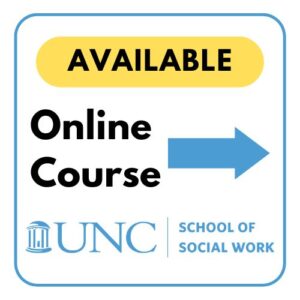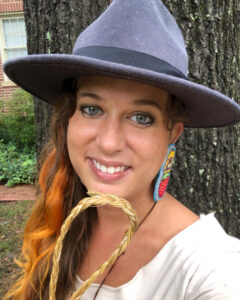Format: Self-paced / asynchronous program
Engage with this recorded program on your schedule.
 CE: 2 CEs total, read for more information on CEs
CE: 2 CEs total, read for more information on CEs
Fee: $35, read for more information on fees and scholarships
Description:
We all know the importance of assessing childhood adversity, due to its impact on short and long-term outcomes. In this workshop, participants will examine the importance of moving beyond the ACE score to account more fully for the complexities of adverse experience. Research shows that there are factors beyond exposure to specific traumatic events that contribute to vulnerabilities and resilience. This is particularly relevant among diverse and marginalized populations given the disproportional exposure of youth of color to trauma and the impact of ongoing exposure to race-related stress. This workshop will help clinicians to be more skilled at identifying racial trauma in young populations as well as in adults. Participants will be introduced to a variety of tools for assessing adversity and a fuller understanding of the impact of historical and intergenerational trauma. Finally participants will learn how cultural factors can promote resilience and how these factors can be used to mediate the impact of adversity.
Learning Objectives:
At the conclusion of this workshop, participants will be able to:
- Describe at least two ways that historical, generational, or racial traumas can impact mental and physical health and functioning
- Identify at least two strategies for assessing broader areas of adversity with clients
- Describe at least two ways that cultural factors can promote resilience
Trainers:
 Tonia Jacobs Deese, MSW, LCSW is a clinical assistant professor at UNC-Chapel Hill School of Social Work, where she serves as a lead trainer, curriculum developer and writer for the Family & Children’s Resource Program. Her work focuses on translating research into skills to foster positive outcomes for families and children and is an expert on trauma, attachment, child development, sexual abuse, and related areas. She conduct trainings throughout the country, including for partners like the Milwaukee Child Welfare Partnership, the Supervised Visitation Network, the Guardian ad-litem program and NC’s Child Welfare Training Partnership, and serves as clinical supervisor and trainer of Family Centered Treatment,® a nationally renowned practice model for preventing out of home placements for children. She is a writer for Children’s Services Practice Notes, a nationally renowned publication highlighting best practices in child welfare. She has been a member of the NC Commission of Indian Affairs’ Standing Committee on Indian Child Welfare for 12 years. She worked in direct practice across multiple settings, including residential treatment, disability services, child welfare, and mental health. Ms. Deese is also a licensed group fitness instructor passionate about holistic wellness and enjoys volunteering with her tribal community.
Tonia Jacobs Deese, MSW, LCSW is a clinical assistant professor at UNC-Chapel Hill School of Social Work, where she serves as a lead trainer, curriculum developer and writer for the Family & Children’s Resource Program. Her work focuses on translating research into skills to foster positive outcomes for families and children and is an expert on trauma, attachment, child development, sexual abuse, and related areas. She conduct trainings throughout the country, including for partners like the Milwaukee Child Welfare Partnership, the Supervised Visitation Network, the Guardian ad-litem program and NC’s Child Welfare Training Partnership, and serves as clinical supervisor and trainer of Family Centered Treatment,® a nationally renowned practice model for preventing out of home placements for children. She is a writer for Children’s Services Practice Notes, a nationally renowned publication highlighting best practices in child welfare. She has been a member of the NC Commission of Indian Affairs’ Standing Committee on Indian Child Welfare for 12 years. She worked in direct practice across multiple settings, including residential treatment, disability services, child welfare, and mental health. Ms. Deese is also a licensed group fitness instructor passionate about holistic wellness and enjoys volunteering with her tribal community.
 Jesalyn Keziah, MSW, a member of the Lumbee Tribe of North Carolina, currently serves as the Community Engagement Program Officer at the American Indian Center at the UNC-Chapel Hill, where she also recently completed her Master’s degree in Social Work. She spent the first decade of her career serving in various statewide community food justice positions including time at Resourceful Communities, The Conservation Fund, the Center for Environmental Farming Systems, and a statewide range of community gardens and local food systems development projects. Jesalyn is a community-oriented gardener, artist, potter, justice advocate, and aspiring therapist interested in Indigenous mental health; she is building her approach around using culture, arts, food sovereignty and nature-based approaches to healing from historical and intergenerational trauma. She recently began caretaking a 100-year-old farm in Durham and is happiest in the sun gathering wild native foods or out kayaking on the river.
Jesalyn Keziah, MSW, a member of the Lumbee Tribe of North Carolina, currently serves as the Community Engagement Program Officer at the American Indian Center at the UNC-Chapel Hill, where she also recently completed her Master’s degree in Social Work. She spent the first decade of her career serving in various statewide community food justice positions including time at Resourceful Communities, The Conservation Fund, the Center for Environmental Farming Systems, and a statewide range of community gardens and local food systems development projects. Jesalyn is a community-oriented gardener, artist, potter, justice advocate, and aspiring therapist interested in Indigenous mental health; she is building her approach around using culture, arts, food sovereignty and nature-based approaches to healing from historical and intergenerational trauma. She recently began caretaking a 100-year-old farm in Durham and is happiest in the sun gathering wild native foods or out kayaking on the river.
References:
- Amaya-Jackson, L., Absher, L.E., Gerrity, E.T., Layne, C.M., Halladay Goldman, J. (2021). Beyond the ACE Score: Perspectives from the NCTSN on Child Trauma and Adversity Screening and Impact. Los Angeles, CA & Durham, NC: National Center for Child Traumatic Stress. https://www.nctsn.org/sites/default/files/resources/special-resource/beyond-the-ace-score-perspectives-from-the-nctsn-on-child-tauma-and-adversity-screening-and-impact.pdf
- Bernard, D. L., Calhoun, C. D., Banks, D. E., Halliday, C. A., Hughes-Halbert, C., & Danielson, C. K. (2020). Making the “C-ACE” for a culturally-informed adverse childhood experiences framework to understand the pervasive mental health impact of racism on black youth. Journal of Child & Adolescent Trauma. https://doi.org/10.1007/s40653-020-00319-9
- Bethell, C., Jones, J., Gombojav, N., Linkenbach, J., Sege, R. (2019). Positive childhood experiences and adult mental and relational health in a statewide sample: Associations across adverse childhood experiences levels. JAMA Pediatrics, 173(11). https://doi.org/10.1001/jamapediatrics.2019.3007
- Finkelhor, D., Shattuck, A., Turner, H., & Hamby, S. (2013). Improving the adverse childhood experiences study scale. JAMA Pediatrics, 167(1), 70-75. https://doi.org/10.1001/jamapediatrics.2013.420
- Hatch, V., Swerbenski, H., & Gray, S. A. O. (2020). Family social support buffers the intergenerational association of maternal adverse childhood experiences and preschoolers’ externalizing behavior. American Journal of Orthopsychiatry, 90(4), 489-501. https://doi.org/10.1037/ort0000451
- Heberle, A. E., Obus, E. A., & Gray, S. A. O. (2020). An intersectional perspective on the intergenerational transmission of trauma and state‐perpetrated violence. Journal of Social Issues, 76(4), 814-834. https://doi.org/10.1111/josi.12404
- Leitch, L. (2017). Action steps using ACEs and trauma-informed care: A resilience model. Health & Justice, 5(1), 5-5. https://doi.org/10.1186/s40352-017-0050-5
- Le-Scherban, F., Wang, X., Boyle-Steed, K.H., Pachter, L.M. (2018). Intergenerational association of parent adverse childhood experiences and child health outcomes. Pediatrics, 141(6). https://doi.org/10.1542/peds.2017-42
- Saleem, F. T., Anderson, R. E., & Williams, M. (2020). Addressing the “myth” of racial trauma: Developmental and ecological considerations for youth of color. Clinical Child and Family Psychology Review, 23(1), 1-14. https://doi.org/10.1007/s10567-019-00304-1
- Woods-Jaeger, B. A., Cho, B., Sexton, C. C., Slagel, L., & Goggin, K. (2018). Promoting resilience: Breaking the intergenerational cycle of adverse childhood experiences. Health Education & Behavior, 45(5), 772-780. https://doi.org/10.1177/1090198117752785